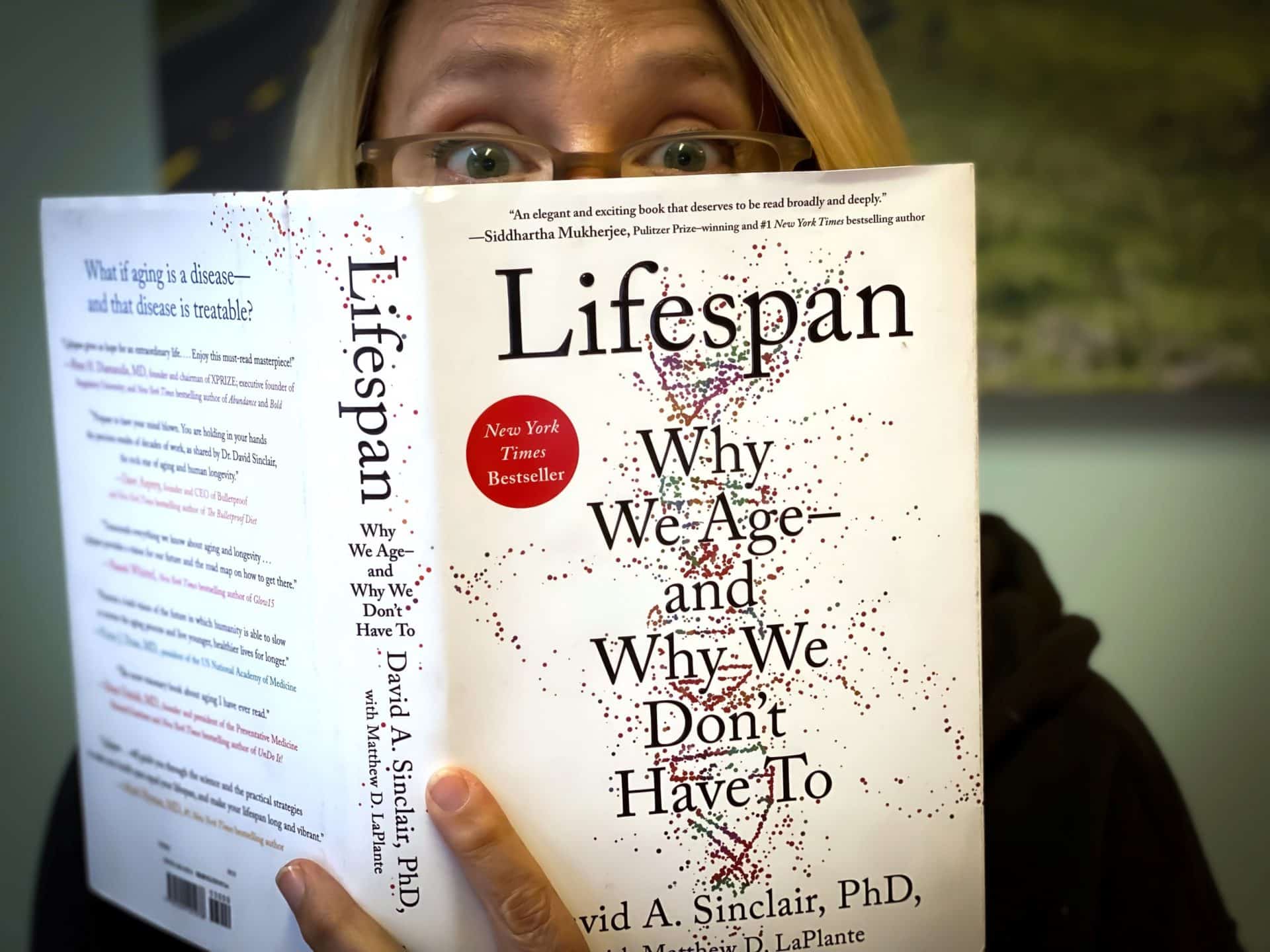Method For: Long Life
As an Amazon Associate and member of other affiliate programs, I earn from qualifying purchases.
Last week I wrote about an Organized End Stage as it relates to aging parents who are either experiencing or approaching big transitions in their lives. I’ve been passionate about that subject since my mother had a stroke several years ago. I became passionate about another, related topic at that time: longevity. I was terrified of having a stroke myself when I reached my mom’s age (early 70’s) because my maternal grandmother had also suffered the same fate at the same age; I began to obsess a little about doing all I could to avoid a stroke. When you are in the crazy-busy years of child-rearing it is really hard to focus on your own health because of constraints on time, family dynamics and energy-levels that feel consistently sapped. I happened upon a book called Lifespan by David A. Sinclair, Professor of Genetics at Harvard Medical School, who challenges the notion that aging is inevitable and instead offers the theory that it is a disease than can be treated.
The book offers a lot of compelling science pointing to the probability that aging is treatable. If you read it you’ll learn a lot about sirtuins, recently-discovered signaling proteins that represent a promising target for slowing down the aging process. I’m not going to write about all of the super-exciting science and emerging technologies that Dr. Sinclair discusses in the book, but I did have 3 big take-aways regarding lifestyle habits that help you stay healthier longer. These are things you can do now that will pay dividends later and they all have to do with putting a little bit of stress on your system, which engages your longevity genes!
Eat Less often and eat less meat
Intermittent fasting and reducing my meat consumption incrementally are my strategies to Eat Less and and Eat Less Meat
There is no one perfect diet for humans to increase lifespan but Dr. Sinclair gives two important catalysts to engage the survival circuits in our genes:
-
Eat Less. Simply, reduce your calorie intake. There are two approaches that accomplish this. One way is to restrict overall calorie intake, not super fun and potentially dangerous depending on your current baseline calorie intake. The other way is to eat less often, which feels far more palatable to me. Many type of fasting can accomplish this – I am a 3-Meals-A-Day, no snacking kind of person so what works for me is to eat 2 normal-sized meals (breakfast & dinner) and reduce one (lunch) to more of a snack. Skipping breakfast isn’t really an option for me since I workout in the morning and am usually pretty hungry when I finish. Since my days are pretty busy lunch is easier to ‘skip’ by quickly eating something small in between sessions/calls/activities. I also try to eat dinner earlier and breakfast later to try and get a 14-16 hour stretch of no eating. Between those 2 strategies I’m doing okay with the Eat Less recommendation. If i get hungry sometimes I recognize the feeling and remember that putting this little bit of stress on my system is activating the longevity genes in my body and that’s a good thing!
-
Eat Less Meat. This one has to do with the heavy load of amino acids in diets with substantial animal protein intake, they are associated with all kinds of health issues from cardiovascular mortality and cancer risk. Of course this is not new news, but I didn’t realize the outsized impact meat has on overall longevity. Eating less meat is hard for me, not only because I enjoy it but also because my family (and husband in particular) are big meat eaters. The small changes I’m working on in our family diet are to up our seafood intake (switching out a meal or two a week that would have been beef , pork or chicken,) cooking one vegetarian meal a week and eliminating meat from my breakfast routine. I’m not going to take meat out completely but I can eat less in pursuit of a longer life.
I put good stress on my system via interval training on my Peloton (photo above is not me, as you can tell by the long hair and 6 pack abs)
high intensity exercise
Yes, we are all very familiar with the benefits of exercise on overall health – blah, blah, blah. It improves lung and heart health, it gives us bigger and stronger muscles, but it also delays the erosion of telomeres, which live at the end of our chromosomes and are associated with longevity. Here again we encounter this concept of stress as an activator of longevity genes. Dr. Sinclair is pretty specific about what kind of exercise and how much is necessary to activate the survival circuit: High intensity intervals are the choice for long life and you don’t have to spend tons of time working out; the equivalent of 15 minutes per day is enough to significantly increase your chance at a longer life. I have upped my fitness game over the past several years and so instead of feeling urgency when I read this section I felt pride. I’m devoted to my Peloton, on which I engage 5 times a week in interval training that leaves me breathless, Yay, me!
Getting cold is the hardest for me of Sincalir’s lifestyle recommendations – I’m still trying!
BBRRRRR
Apparently subjecting your body to cold on a somewhat regular basis is also really good for activating the ancient survival circuit in your body. How? when you are cold your body has to do extra work to stay warm as it seeks out a stable equilibrium. If you have access to one of those Nordic-style spas where you sauna then plunge into a cold pool you can tick off this box. Alternatively, you can finish your shower each morning with a refreshing cold stream of water hitting your body. The spa option is inconvenient for busy people and I find the shower strategy difficult to implement (I’ve done it maybe twice in the summer?) Another tactic to try is just going outside in the cold without being bundled up and take a short stroll. You don’t have to give yourself frostbite, just get cold enough to really feel it – that will kickstart your longevity jeans and they’ll start doing the work of reversing the aging happening in your body. I will admit this one is the most challenging for me and I’m still working on it. I’m going to try the shower strategy again as summer is coming and it’s not cold enough outside for me to really get cold. Using what I’ve learned from Atomic Habits I will start small (once a week?) and hopefully build up over time. We’ll see – but living better, longer is a pretty motivating goal and I’m all about the system to reach the goal so watch for future updates on my dedication to the cold!
I mostly write about organization habits on this blog and aging may seem like I’m leaving my lane but I think of these lifestyle changes as a method I’m ‘installing’ for a longer, healthier life. It’s investing in systems now that will pay off later, just as I advise clients to do in their homes. I don’t need to live forever but I would like to protect the quality of my life in my later decades, so I’m working on these 3 strategies and going for incremental improvements so I don’t get overwhelmed. I highly recommend Lifespan and Dr. Sinclair is Australian, so if you listen to the book on Audio you’ll have the additional pleasure of his accent while you learn all about how we don’t really have to age. I found it to be compelling, inspiring and extremely motivating!










